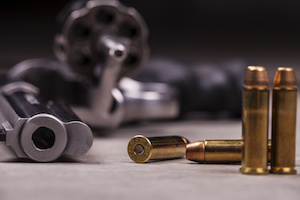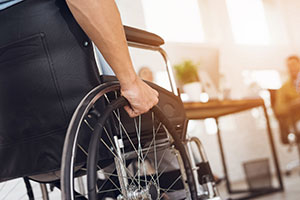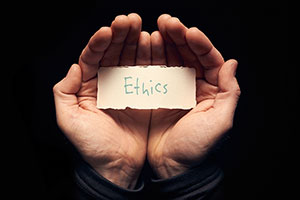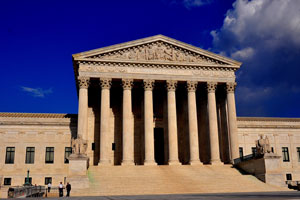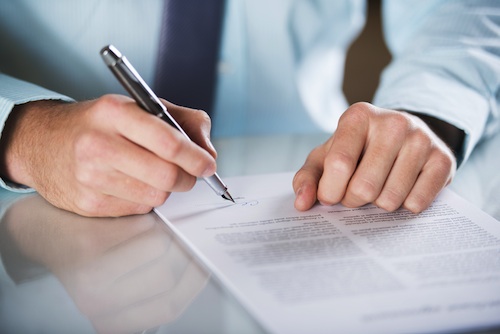Tuala Auimatagi is accused of committing two murders in August 2019. The first charge involves a drive-by shooting in West Sacramento. The second shooting took place a week later in Richmond, California. Both victims were shot with a rifle.
No eyewitness identified Auimatagi as the shooter in West Sacramento. The only eyewitness to the Richmond shooting was the victim’s girlfriend. She told a police detective that Auimatagi broke into her home to retrieve a handgun that she had given to the victim. The victim’s girlfriend claimed she saw Auimatagi shoot the victim. However, the girlfriend died before the case went to court, leaving the prosecution with no eyewitness.
The prosecution was able to use the girlfriend’s hearsay statement at a preliminary hearing. Based on that statement, the court found that there was probable cause to charge Auimatagi with the Richmond homicide.
Forensic Expert’s Opinion
Images from street cameras established that Auimatagi was in a black BMW on nearby roads in West Sacramento on the day of the first shooting. The prosecution relied on the expert testimony of Alex Taflya to link Auimatagi to that shooting.
Taflya is a forensic expert employed by the Yolo County Sheriff’s Office. He compared the bullets that killed both victims. Tayfla testified that the two bullets shared markings that suggested they were fired from the same firearm. However, Tayfla could not evaluate the firearm and therefore could not be certain that the bullets were fired from the same gun.
Tayfla testified that, assuming the similar markings were not made by characteristics that are common to the same make and model of firearm, they were fired by the same gun. In the court’s view, Taflya’s testimony was sufficient to establish probable cause to support the prosecution’s charging decision. Whether that testimony would be admissible at trial was a separate question.
Subclass Markings
Fans of the CSI series might believe that ballistics is a rigorous science. A critique of firearms identification prepared by a committee of the National Research Council (NRC) in fact been described ballistics as “part science and part art form.”
Markings are made on bullets as they travel through the barrel of a gun. Some of those markings (known as class characteristics) might be made by thousands of firearms of a particular model and manufacturer. Other markings (known as individual characteristics) are made by particular guns and may be unique to an individual gun.
In a middle range between class characteristics and individual characteristics are subclass characteristics. The NRC notes that subclass characteristics are caused by the gun’s manufacturing process. They may be present in only a small subset of guns that were manufactured in the same place and at the same time, but they are not uniquely caused by a particular gun. Two different guns can produce identical subclass characteristics.
The Limits of Firearms Identification Evidence
The NRC review makes clear that it is impossible to be certain that two bullets were fired from the same gun without examining every gun that could have fired the bullets. The fact that two bullets share similar markings does not rule out the possibility that they were fired from two guns that happen to cause similar markings. The President’s Council of Advisors on Science and Technology (PCAST) agreed that ballistics evidence, like much other evidence involving forensic standards, is too subjective to produce consistently reliable results.
In addition, to know whether markings are individual characteristics or subclass characteristics, it is necessary to know the manufacturer and model of the gun from which the bullet was fired. Firearms examiners can generally rule out the possibility that two bullets were fired from the same gun when their markings are different. Concluding that two bullets were fired from the same gun is much more difficult. It is usually impossible to draw that conclusion with any certainty if the examiner does not have the gun from which the bullets were fired.
Expert Opinion Limited
As Auimatagi’s case approached trial, his lawyers filed a motion to exclude Talfya’s opinions on the ground that they were not reliable. The trial judge decided that Talfya would be allowed to testify, but that his testimony will be limited.
The judge decided that Talfya can testify that he saw similar markings on the bullets recovered in the two shooting. The judge allowed Talfya to describe how guns leave markings on bullets. Talfya will also be allowed to testify about the characteristics of the markings he saw on each bullet.
Talfya will not be allowed to testify, as he did in the preliminary hearing, that the bullets came from the same gun “assuming” that the similarities were not characteristics produced by all guns within the same subclass. The judge recognized that Talfya’s assumption was “not supported by the facts or the science and misstates the level of scientific certainty of his findings and is therefore misleading.”
If he is asked on direct or cross-examination, Talfya will also be allowed “to testify that he cannot exclude or eliminate the bullets as coming from different guns.” He “will not be permitted to describe any greater level of scientific certainty than the bullets may or may not have come from the same gun.” Since Talfya doesn’t know whether the bullets came from the same gun, he shouldn’t be permitted to hint that they probably did.
Lessons Learned
The defense relied on two expert witnesses, Dean David Faigman and Nicholas Scurich. Faigman was a Senior Advisor to the PCAST Report, “Forensic Science in Criminal Courts: Ensuring Scientific Validity of Feature-Comparison Methods.”
The Auimatagi prosecution underscores the importance of consulting with a defense expert whenever the prosecution relies on a forensic expert. Expert witnesses can provide vital testimony at trial to counter the prosecution expert’s opinions.
As importantly, defense experts can support a challenge to the admissibility of a prosecution expert’s testimony. Given the tendency of prosecution experts to overreach, employing a defense expert early in the case can assure that juries never hear harmful opinions that amount to improper speculation.


